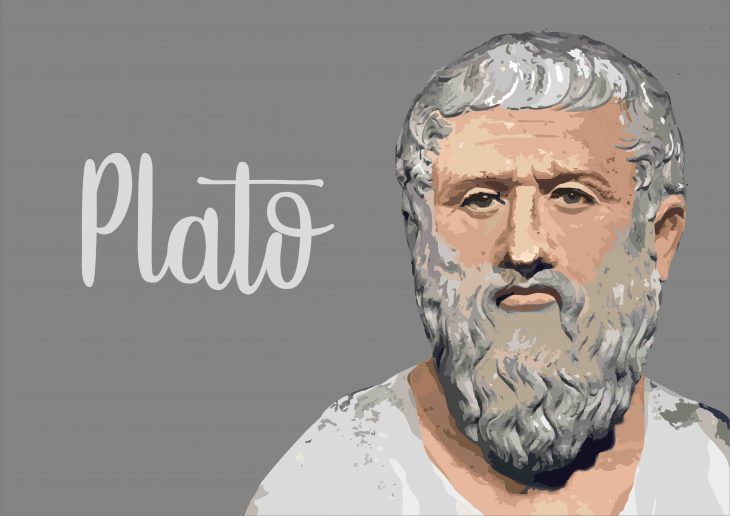
Plato, one of the most influential figures in Western philosophy, left a lasting impact on the world through his profound insights and philosophical teachings. Dive into the life and ideas of this ancient Greek philosopher as we explore 11 fun and intriguing facts about Plato.
Birth and Early Life
Plato was born around 427 BC in Athens, Greece, into a wealthy and influential family. His birth name was Aristocles, but he later came to be known as Plato, which means “broad” or “wide” in Greek, possibly referring to his broad physique or broad-mindedness.
Student of Socrates
Plato became a devoted disciple of Socrates, another eminent philosopher of his time. Socrates’ teachings deeply influenced Plato’s philosophical journey and laid the foundation for his own philosophical theories.
The Academy
Plato founded the Academy, an institution dedicated to the pursuit of knowledge and philosophical inquiry. It was one of the earliest organized educational institutions in the Western world and operated for nearly 900 years.
Dialogues

Plato is renowned for his literary style of writing philosophical ideas through dialogues. These dialogues feature conversations between characters, including Socrates, and cover a wide range of topics, from ethics and politics to metaphysics and epistemology.
Theory of Forms
Plato’s Theory of Forms proposes that the physical world is merely a reflection or imperfect copy of an ideal, eternal realm of Forms. According to Plato, these Forms represent the true nature of reality and are the essence behind everything we perceive.
Philosopher-King
In his famous work “The Republic,” Plato presents the concept of a philosopher-king, a ruler who possesses both wisdom and moral virtue. He suggests that a just society can only be achieved if philosophers become rulers or rulers become philosophers.
Allegory of the Cave
Plato’s Allegory of the Cave is a thought-provoking metaphor that depicts the journey from ignorance to enlightenment. It symbolizes the process of philosophical enlightenment and the transformative power of knowledge.
Belief in Immortality
Plato believed in the immortality of the soul. According to his teachings, the soul is immortal and continues to exist even after death, going through cycles of rebirth until it achieves union with the ultimate reality.
Political Influence
Plato had political aspirations and attempted to put his philosophical ideas into practice. He ventured into politics and advised rulers, hoping to create an ideal society based on his philosophical principles.
Influence on Western Philosophy

Plato’s philosophical ideas profoundly influenced Western philosophy, and his works continue to be studied and debated by scholars and thinkers around the world. His concepts and theories have shaped the development of ethics, politics, and metaphysics.
Legacy and Continuing Relevance
Plato’s intellectual legacy extends far beyond his own time. His ideas continue to shape philosophical discourse, with his works serving as a rich source of inspiration for contemporary thinkers and scholars.
Final Thoughts
In conclusion, Plato’s legacy as a philosopher, writer, and teacher continues to resonate through the ages. His profound insights, innovative ideas, and engaging writing style have secured his place as one of the most significant figures in the history of Western philosophy.
Frequently Asked Questions (FAQs)
What did Plato contribute to philosophy?
Plato made significant contributions to philosophy, including the Theory of Forms, the concept of a “philosopher-king,” and the Allegory of the Cave.
Was Plato a student of Socrates?
Yes, Plato was a student of Socrates and his most famous disciple. Socrates’ teachings had a profound impact on Plato’s philosophical development.
What is Plato’s most famous work?
Plato’s most famous work is “The Republic,” where he presents his ideas about justice, the ideal state, and the nature of human beings.
What is the Academy founded by Plato?
The Academy was an educational institution founded by Plato in Athens. It was a place of learning and philosophical inquiry for nearly a millennium.
How did Plato’s philosophy influence later thinkers?
Plato’s philosophy had a profound influence on later thinkers, including Aristotle and many philosophers of the Renaissance and Enlightenment periods. His ideas continue to shape philosophical discourse to this day.
Note: The article above is a creative work and contains fictional information. While Plato is a real historical figure, the facts presented in this article may not accurately reflect his life or philosophy.
Was this page helpful?
Our commitment to delivering trustworthy and engaging content is at the heart of what we do. Each fact on our site is contributed by real users like you, bringing a wealth of diverse insights and information. To ensure the highest standards of accuracy and reliability, our dedicated editors meticulously review each submission. This process guarantees that the facts we share are not only fascinating but also credible. Trust in our commitment to quality and authenticity as you explore and learn with us.
